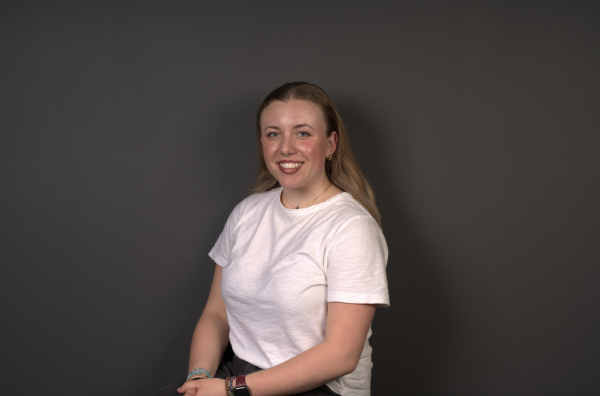The Wisconsin New Voices bill (Senate Bill 571) is at risk of failing due and we cannot let that happen.
The Wisconsin New Voices bill codifies student journalists’ First Amendment rights by stipulating that student journalists are responsible for determining the content of student publications at public secondary schools and colleges.
The goal of the bill is to learn real life journalistic skills in a student newsroom.
On Nov. 7, 2023 the Assembly Committee on Colleges and Universities unanimously approved the Wisconsin New Voices bill. Proceedings went quiet for a while before an amendment to require parent permission forms for minors to participate in student media was announced in the Senate.
One of the bill’s Senate sponsors said the amendments were “less than ideal.” So, why was it proposed?
Where there is press, there is fear of the press. In recent years, “the media” (whatever that means) has been framed as something nefarious. Legislators on the committee are worried that with guaranteed student press freedom comes boundless legal fees and lawsuits.
Because of this, the bill does not have enough votes to move out of committee.
Isn’t this a counterproductive way of thinking about this?
The Oxford dictionary defines law as “the system of rules which a particular country or community recognizes as regulating the actions of its members and which it may enforce by imposition of penalties.”
Right now, student journalists in the state of Wisconsin do not have a clear set of rules for publication and the schools they work under don’t either.
Along with no clear set of rules, there is also no clear protection for students or advisers.
The proposed bill states, “under the bill, neither a pupil journalist nor a media adviser may be disciplined for acting in accordance with the bill.”
The goal of the New Voices bill is not to allow students to run rampant and publish anything they desire. It is meant to allow students to collaboratively determine the news, opinions, features, etc. that their school paper will publish without fear of backlash from their administrations.
Advisers will still be there to help prevent students from publishing libel, and there will still be deliberate conversations about journalistic ethics and integrity.
In no way is this proposed bill saying that student journalists will be allowed to publish provably false information. The student newsroom is an educational experience just like the classroom, and no one is teaching us it’s okay to fabricate a story.
Here’s the thing: student media already faces a plethora of legal action. In the event of a lawsuit, there are fantastic resources in place to help protect us.
For example, in 2022-2023 the Student Press Law Center helped over 2,000 students and advisers with their legal issues. The Foundation for Individual Rights and Expression has also helped countless student journalists defend their rights to free speech and free press.
In the 1980s, three professors from the University of Iowa conducted a study called the Iowa Libel Research Project.
While not the original intention of the study, they found 90% of litigants lost their case.
Floyd Abrams, a New York lawyer, estimated 75% of libel cases that end up in front of a jury are won, but the media usually succeed in reversing the verdict when the cases are appealed to higher courts.
Right now, the Wisconsin New Voices bill is being stalled for a nonissue. There is no higher risk for legal fees and lawsuits, and the passage of this bill will only strengthen the rights student journalists can enjoy in the state of Wisconsin.
We must not let this bill fail before it reaches the higher courts. Our First Amendment rights grant us the right to freedom of speech and free press. Let’s solidify those rights for student journalists.
The Wisconsin New Voices bill is incredibly important and together we can make it strong.
The Student Press Law Center has provided talking points that include partial scripts for both phone call and written communication. Contact your senators and show them how this bill is protecting a constitutional right for students in Wisconsin.






